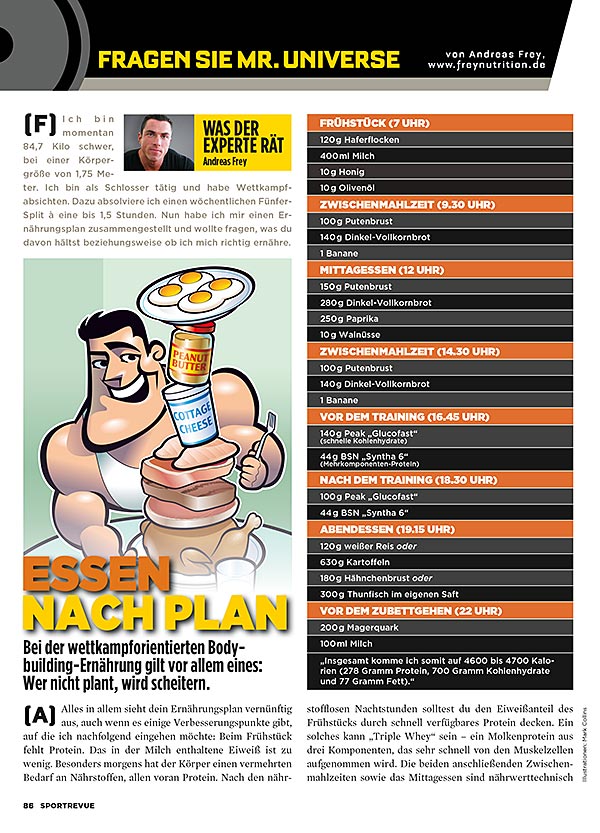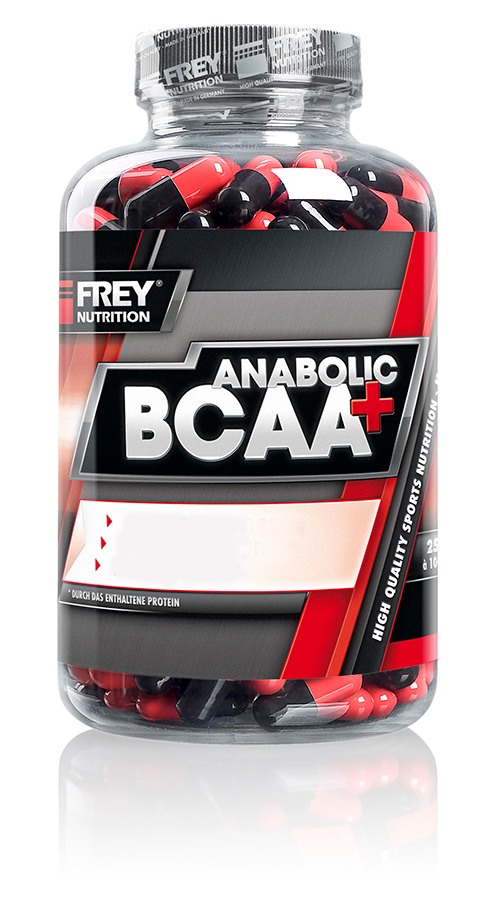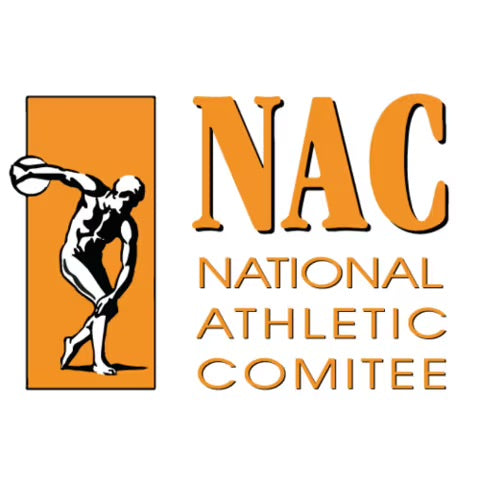ANSWER
!
All in all, your diet plan looks reasonable, although there are a few areas for improvement that I would like to address below: There is a lack of protein at breakfast. The protein contained in milk is too little. The body has an increased need for nutrients, especially protein, in the morning. After the nutrient-poor night hours, you should cover the protein portion of breakfast with quickly available protein.
ONE SUCH THING COULD BE TRIPLE WHEY - A WHEY PROTEIN MADE OF THREE COMPONENTS THAT IS ABSORBED VERY QUICKLY BY MUSCLE CELLS. The two subsequent snacks and lunch are nutritionally well put together, there is nothing wrong with that. You should avoid carbohydrates as much as possible directly before training. There are two good reasons for this:
1. If you consume carbohydrates before training, your body has to digest them. It is forced to do this during training. Blood is needed for digestion, which is then no longer available to the muscles being trained. In addition, digestion during training can reduce performance. A feeling of fullness often occurs.
2. During a heavy and intense workout, the body releases growth hormone. However, this only happens when insulin levels are low, as growth hormone and insulin are antagonists and prevent each other's release. Eating carbohydrates before training triggers an insulin reaction, which in turn can negatively affect, if not prevent, the release of growth hormone during training.
The last meal containing carbohydrates should therefore be eaten between one and one and a half hours before training. I cannot recommend taking "Syntha 6" before training as it contains too many carbohydrates and sugar. If you want to use a useful supplement before a workout - for example to protect the muscles from catabolic (ergo-degrading) processes - I recommend whey protein or - even better -
ABOUT BRANCHED CHAIN AMINO ACIDS (BCAAS) .
What do carbohydrates do after training? BEST IN THE FORM OF MALTODEXTRIN ? of course makes sense, since at this point in time the highest possible insulin release should take place. The higher the release, the more effectively the nutrients required for regeneration and muscle building are transported into the muscle cells.
Branched-chain amino acids (BCAAs), L-glutamine and creatine are essential components of an effective bodybuilding diet.
Since you have competitive ambitions, I definitely recommend taking BCAAs and glutamine after training. The former in a dosage of one gram per ten kilos of body weight per day, the latter in a dosage of ten grams per day.
DURING A DIET, TAKING GLUTAMINE ALSO MAKES SENSE ON NON-TRAINING DAYS. During this time, the organism draws on the body's glutamine reserves in particular... I can also recommend creatine. No other supplement has such a positive effect on muscle building and increasing strength. It is important to take at least three grams a day. If you want to use creatine, it is best to take it on training days with a post-workout shake, as it - like glutamine - is absorbed in an insulin-dependent manner. On non-training days, you should take the creatine with a carbohydrate-rich meal.
Creatine and glutamine are broken down very quickly in liquids. Creatine, for example, turns into ineffective creatinine. Therefore, you should only mix both supplements with water shortly before consumption and then drink the shake immediately. If you use coffee or caffeine to increase performance, leave a gap of at least 1.5 to 2 hours between taking creatine and caffeine, as both substances impede each other's absorption.
A CREATINE TREATMENT SHOULD LAST APPROXIMATELY EIGHT WEEKS , followed by a four-week break. Also make sure you drink enough fluids, about one liter per 20 kilograms of body weight. I prefer still water, or tap water if you like. You can drink a lot more of it than carbonated water, which can also often suppress your natural thirst.
After 60 minutes of exercise, the body releases the catabolic (= muscle-degrading) hormone cortisol!
Even though your question is about nutrition, I would like to briefly address training: after 60 minutes of exertion, the body is put under stress and releases the hormone cortisol as a protective measure, which has a strong catabolic effect. As a result, the organism uses the laboriously trained muscles as an energy source - a scenario that should definitely be avoided...
To avoid this process, you should limit your training to 45 to a maximum of 60 minutes . With a weekly five-split (and a rest time of about 1.5 minutes between sets) a 45-minute training session is easily manageable. I wish you the best of luck in preparing for and taking part in any competitions!















